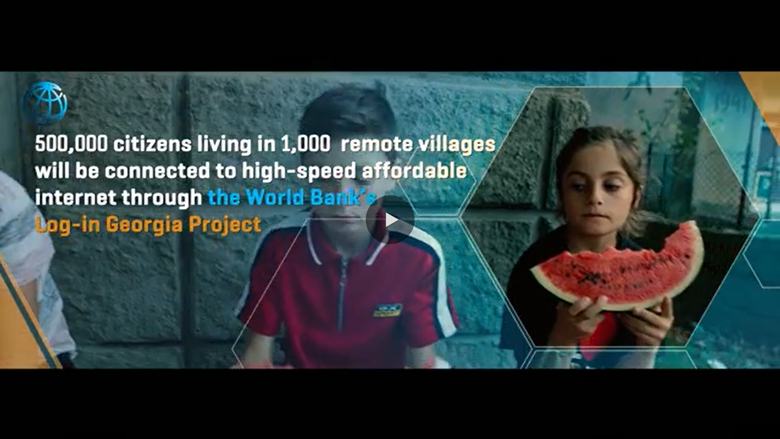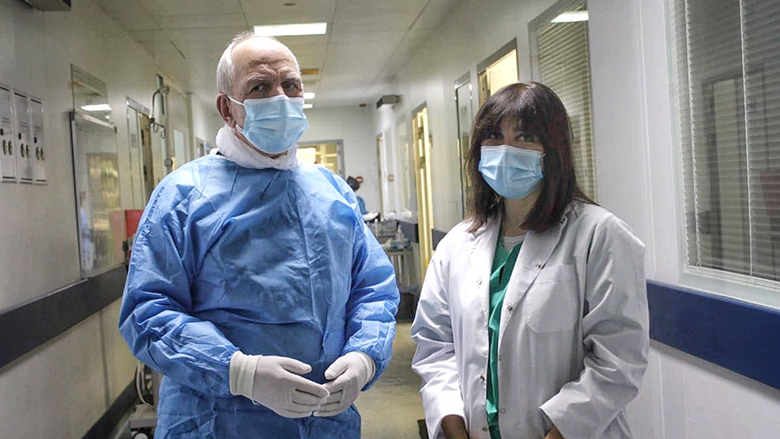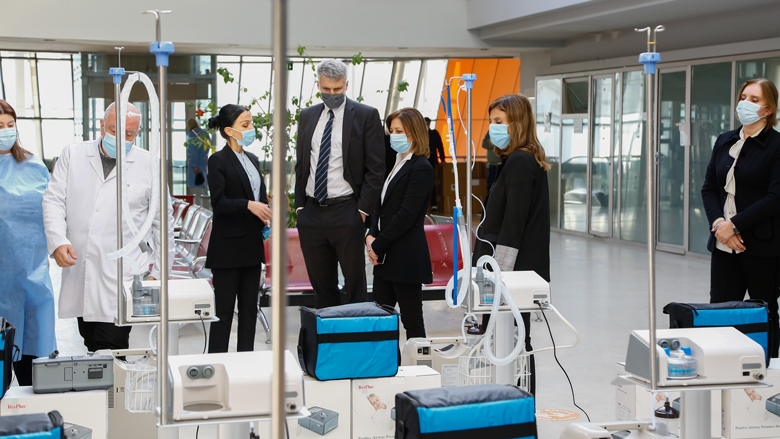World Bank Emergency Response
Since the onset of the crisis, the World Bank has worked closely with the Government of Georgia to help the country and its citizens battle the health, social and economic impacts of the pandemic. The Bank was one of the first international financial institutions to extend support to Georgia through its $80 million Emergency COVID-19 Response Project, which came into effect in May 2020.
The project has two primary goals. First is to save lives and protect health workers. Facing a lack of essential medical supplies and equipment, Georgia’s Health Ministry first set about procuring over 5 million PCR and Rapid Test Kits, 1,000 Oxygen Concentrators, up to 600 medical beds, hundreds of Critical Care and Emergency Ventilators, and more.
This resupply – and in some cases upgrade – of hospitals around the country was crucial to saving the lives and protecting the well-being of thousands of people, including at-risk populations and health workers.
But the impacts of the COVID-19 pandemic go far beyond people’s health. The crisis has also had very serious social and economic impacts on communities. As such, the second goal of the Emergency COVID-19 Response Project is to help protect jobs and livelihoods.
The World Bank has partnered with other international finance institutions – such as the Asian Infrastructure Bank – to finance the Government’s social support package. This package has provided temporary monthly benefits to more than 82,000 families in need, one-off benefits to 308,000 self-employed individuals, and temporary unemployment benefits to about 268,000 additional citizens. This aid turned out to be the only income for some of the most vulnerable and poorest families during the crisis.

Enabling Vaccines and Supporting Businesses
In June 2021, a further $34.5 million was allocated by the World Bank to support the vaccination system and vaccination rollout across Georgia. And, at the request of the Government, the Bank rapidly mobilized a robust financial support package for Georgian businesses hit hard by the curfews, lockdowns and other COVID-19-related restrictions implemented to protect citizens’ health.
In May 2021, the EUR 85 million Relief and Recovery for Micro, Small and Medium Enterprises (MSMEs) Project was approved, which was designed to contribute to the Government’s jobs agenda and support up to 6,000 micro, small and medium-sized enterprises that have been most affected by the pandemic, especially in sectors like agriculture and tourism.
The pandemic has also emphasized the need to look to the future and ensure that the next generation is better prepared for a more digital world.
The World Bank’s Log-in Georgia Project, launched in 2020, will play an invaluable role in accelerating Georgia’s digital journey. Over the coming years, the project will connect up to 500,000 people in over 1,000 villages in the remote regions to high-speed affordable broadband internet. This will enable crucial services such as digital finance, e-commerce, e-governance, telemedicine, and very importantly – remote learning.
This could be life-changing for many Georgian children, especially those in remote rural areas such as the mountainous village of Argokhi, which is relatively isolated from the rest of the world. “During the pandemic, I realized how important good-quality internet is for education,” says Inga Khvedelidze, the local teacher. “The children will get more information, and they will get it faster.”
COVID-19-related distance learning activities are also financed through the Georgia Innovation, Inclusion and Quality (I2Q) Project, one of the aims of which is to put computers in every classroom for grades 1 to 9 in 475 schools.




As countries like Georgia continue to battle the immediate impacts of the pandemic, they are also looking to address long-term development challenges. Through its EUR 45 million Supplemental Economic Management and Competitiveness Development Policy Operation the World Bank has extended direct budget support to the Georgian government in its effort to ensure continued macroeconomic stability and safeguard progress on reforms that support the long-term growth agenda.
Over the past three decades, the World Bank has continued to be a pillar of support to Georgia in its efforts to achieve its development goals. Going forward, the Bank remains committed to helping Georgia on its transformative journey toward achieving a green, resilient and inclusive recovery.





